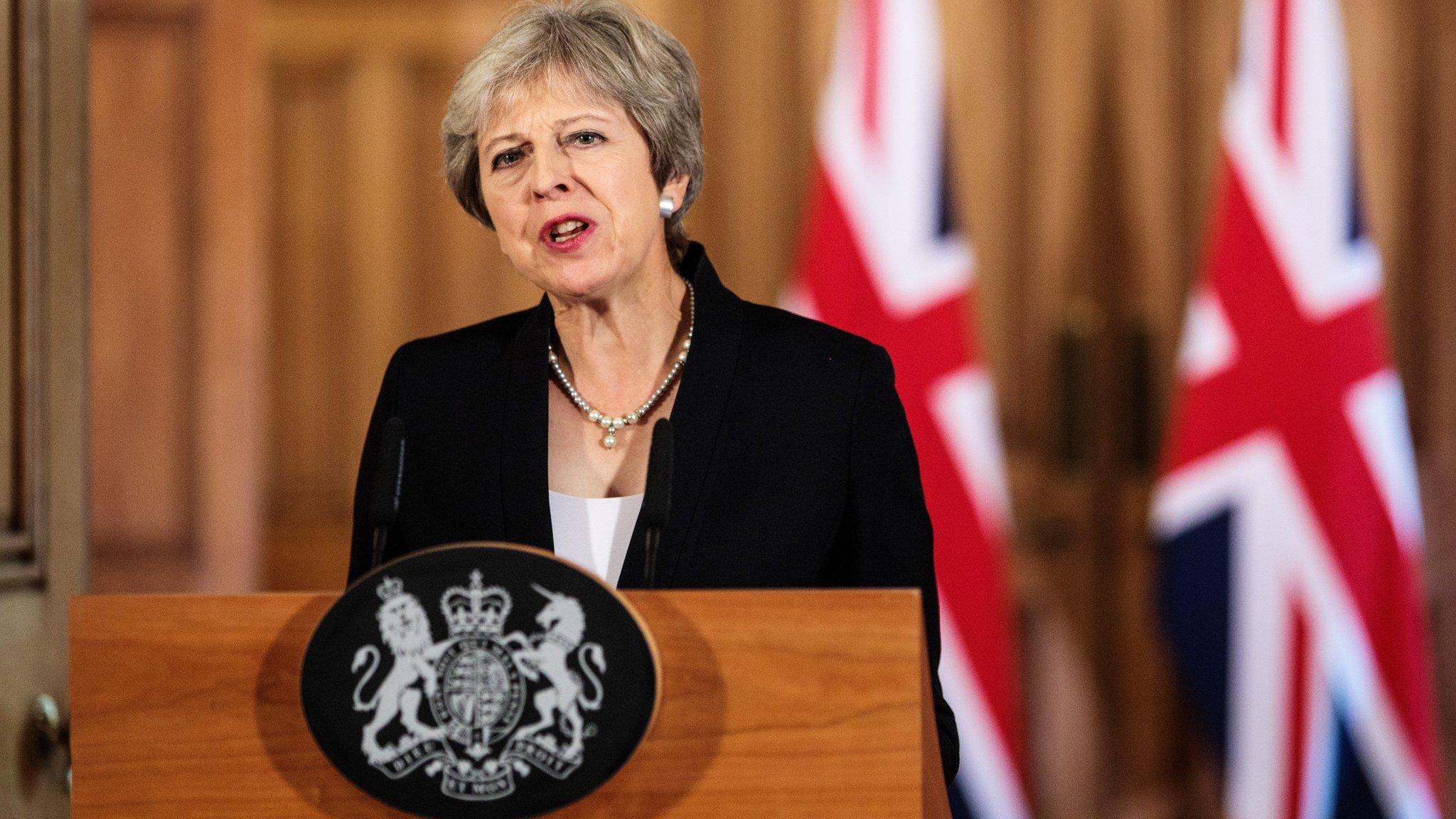Brexit: Why does everyone still not agree?
- Published

Prime Minister Theresa May has made a big speech about the government's plans for leaving the European Union (EU).
She says the two sides - the UK and the EU - are still a long from making a deal about how to separate.
This could mean the UK ends up leaving the EU with "no deal".
But what does that mean? And what is making it so difficult for the two sides to agree?
What does the UK want?
One of the big problems in the Government's discussions with the EU is trade.
Trade is when countries buy and sell things from each other.
Countries that are members of the EU have a special deal that helps them to do this more easily.
Theresa May wants to create a new trading relationship which would let the UK trade easily with the EU but also make deals with other countries around the world.
She says the EU doesn't like the UK's suggestion of how this might work, and needs to try harder to come up with an acceptable alternative.
On 23 June 2016, the UK made a historic decision. It voted to leave the European Union (EU).
More than 33 million adults voted. Around 52% of them chose to leave the group of 28 countries, while 48% wanted to stay in it.
The UK has been a member of the EU for more than 40 years, so this was an extremely important moment.
There's a particularly difficult question about the Irish border
Northern Ireland has a 310-mile long border with the Republic of Ireland, which is a member of the EU.
Finding a way to make this border work is one of the biggest difficulties in reaching a deal with the EU.
It's a particularly sensitive issue because an open border between the Republic of Ireland and Northern Ireland was a key part of the Good Friday Agreement, a deal which ended a period of conflict in the region called the Troubles.
What's been suggested?
People cross the border every day - to go to work, visit friends and family or to get to the shops or use leisure facilities.
At the moment they don't need to carry their passport or go through any checks to make this trip. It's basically invisible.
Trade is also made across this border, with companies carrying goods to be sold on either side.
But when the UK leaves the EU, this border between the UK and the EU will become trickier to manage.
One option would be for the border between the two countries to become a "hard border", with border posts or cameras. Both the EU and the UK say they want to avoid this.
Another suggestion is that Northern Ireland should to continue to follow the same rules as the Republic if Ireland, and the rest of the EU.
But Theresa May says this would separate Northern Ireland from the rest of the UK and that is something she could never agree too.
So far the two sides haven't found a solution to this issue.
What does 'no deal' actually mean?
The UK is due to leave the European Union on 29 March 2019.
Theresa May says she is fighting to agree the best possible deal for the UK and that she wants to respect the wishes of British people who voted to leave the EU.
If a deal isn't possible, she says she's prepared for the UK to leave without a deal, and her government is preparing for what could happen if no deal can be reached.
EU citizens living in the UK
There are lots of questions about what could happen if the UK doesn't get a deal with the EU and loads of different views about what the benefits and disadvantages of this could be.
One of the big questions is what will happen to people from other EU countries who currently live here.
Citizens from any country in the EU are free to live and work in any other country that's a member.
After Brexit, this will no longer be the case for the UK.
But in her speech Theresa May promised that the rights of EU citizens who already live here will be protected.
"You are our friends, our neighbours... We want you to stay."
Theresa May
So what happens next?
The truth is, no one really knows, and the negotiations are still going on.
The UK will exit the EU 29 March 2019.
Experts say that if a deal is to be made in time, it needs to be agreed by the middle of November 2018.
Theresa May says it's now time for the EU to make some more suggestions for how to make a future relationship work.
- Published10 January 2019
- Published16 June 2016
- Published10 April 2023
